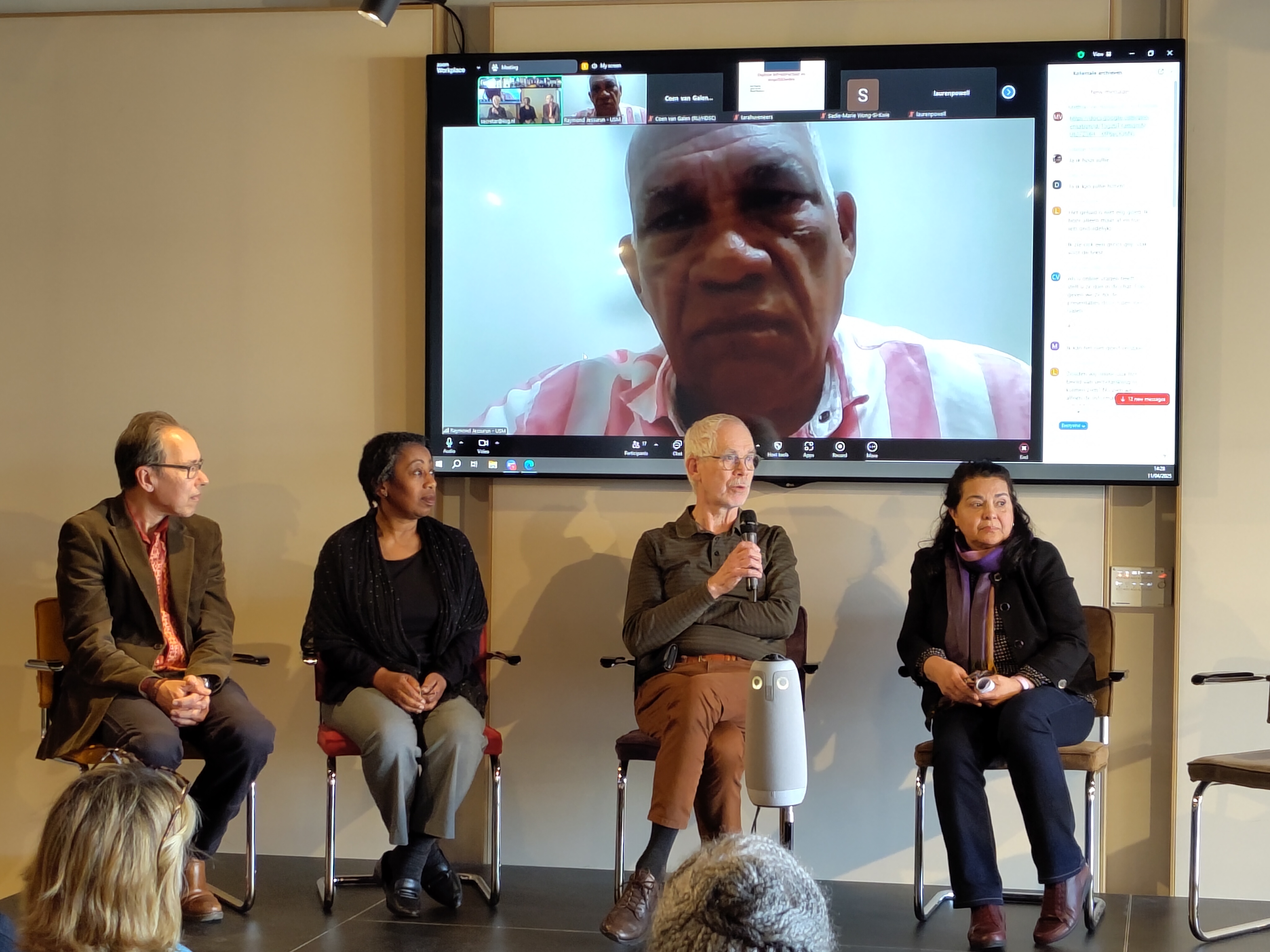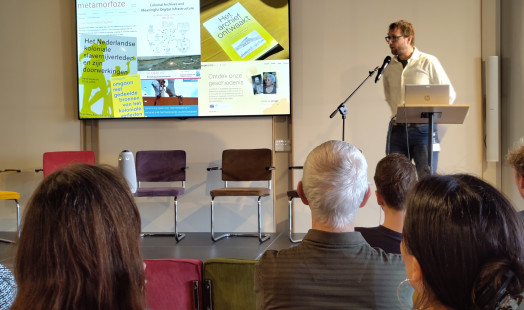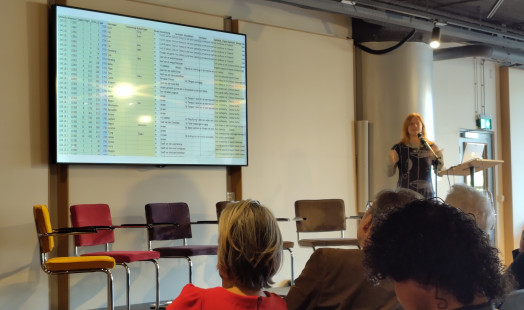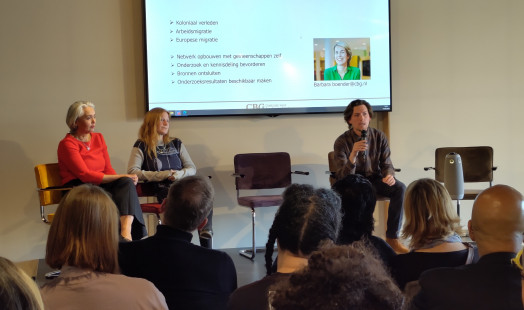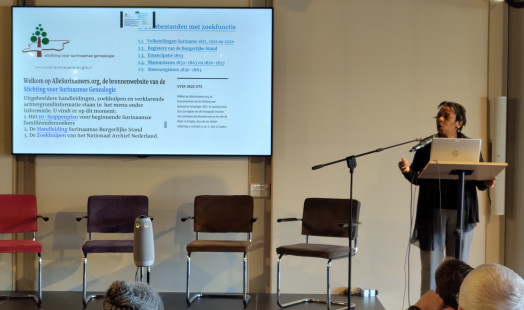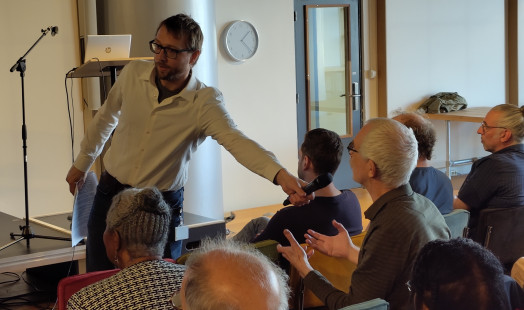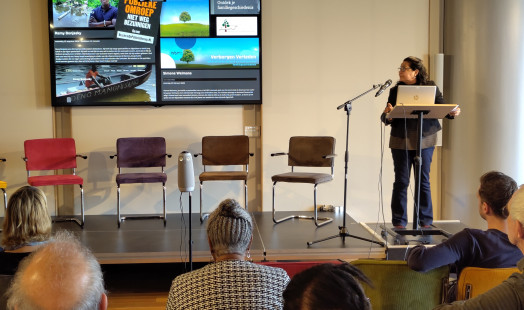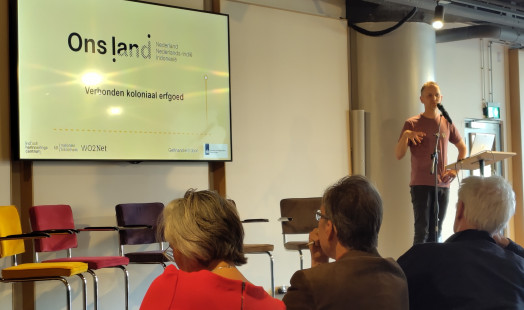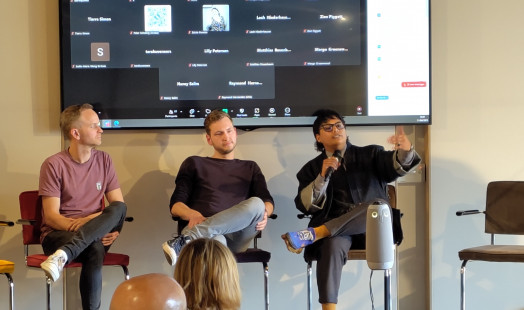Challenges surrounding colonial archives
On April 11, 2025, collaborative projects between the IISG and Radboud University organized the symposium Colonial Archives, Slavery History, and Ancestral Research.
The aim of this meeting was to bring together different groups – from academics to citizen scientists – who are all involved in opening up colonial archives in relation to the history of slavery. At the same time, the symposium explored the needs of the citizen science community with regard to recent developments in the collection of genealogical data.
Obstacles
Representatives from organizations including the HDSC, IGV (Indische Genealogische Vereniging),Centrum voor familiegeschiedenis, Globalise, Onsland.nl, AMIK, and Stichting voor Surinaamse Genealogie
each gave a presentation on how they are trying to make colonial data accessible to the general public, with or without the help of volunteers. In doing so, they encountered various obstacles in the process of opening up the archives.
The most common complaint was that both enthusiastic citizen researchers and academics found very little individual identity data on enslaved people in the colonial archives. The reason for this was well known, but no less painful: enslaved people were not seen as human beings at the time, but as property. As a result, white colonizers did not consider it necessary to record the original names of enslaved people or where they had been abducted from. The lack of these documents seriously hinders the search of many descendants for the origins of their non-Western family history.
Language use
Another sensitive issue was the use of language. Nowadays, this can not only be hurtful (because of the racist terminology), but it also shows source texts that are full of prejudice. On top of that, descendants of enslaved people from Africa, Latin America, or Asia face a huge language barrier: the archives are only written in the language of the former colonizers.
The descendants also note that their ancestors are only registered in the archives with a European surname, or that after the abolition of slavery in 1863, they moved to other places outside the plantations to build a new life – sometimes out of sight or reach of the colonial authorities. As a result, these ancestors are no longer listed in the population register elsewhere. Researchers therefore sometimes have difficulty tracing the ends of a particular family tree.
This ‘emotional rupture’, in which families in both Africa and on the colonial plantations were cruelly torn apart by the interference of others, is a sensitive issue that receives too little attention in academia, according to sociologist Raymond Jessurun (University of St. Maarten). “We are still passing on the trauma of broken family ties,” he says. “Restoring that, by making data digitally accessible to everyone, is the most important goal we should have in mind.”
Powerful insights
Afterwards, participants networked and exchanged business cards to deepen their partnerships. Everyone agreed that this meeting had yielded powerful insights, with the colonial archive being seen as a living, layered, but also controversial space. A space that requires new perspectives and collaborative approaches.
It was not without reason that participants were called upon to continue listening, connecting, transforming, and embracing the archive as a potential bridge between the past, identity, and a future of healing and recognition.
